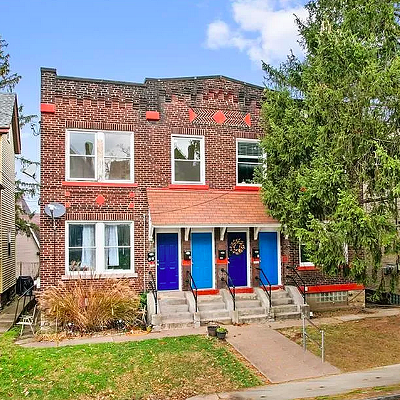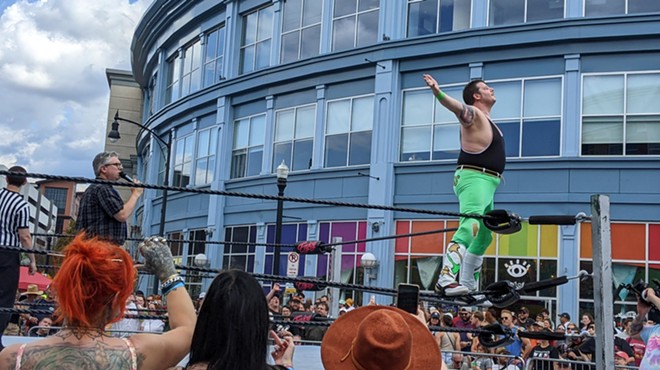During the 1970s, Louis Manderino offered living proof that America really was the land of opportunity: The son of Italian immigrants who grew up in the tiny Mon Valley town of Monessen, Manderino became the youngest state Supreme Court justice in Pennsylvania history, and then got caught up in a nasty, public divorce. And really, isn't that what the American Dream is all about?
Even before he graduated from Monessen High in 1947, Manderino was a noted talker: Legend has it that Manderino showed up on the campus of Harvard University with $11 in his pocket, but somehow convinced the school to finance his education.
A few years after graduating in 1954, Manderino became a law professor at Duquesne University. He later became dean of the law school, but he always had the makings of a politician. ("I liked the guy but I couldn't shut him up," one newspaper editor was quoted saying in the Pittsburgh Press.) He first ran for the state Supreme Court in 1969 and lost, but was appointed to the Commonwealth Court, a lower state appeals court, in 1970. In 1971, he ran for Supreme Court again, and this time won. At 42, he was the youngest judge to ever hold the spot, and was one of its first Italian-Americans.
In the courtroom, Manderino was both active -- he frequently paced about the courtroom while during proceedings -- and an activist. Upon being sworn in, Manderino asserted that judges were "moving into a new era of people problems" -- and that such problems demanded "young men and younger energies to overhaul the whole system." Perhaps his most celebrated decision was a 1978 opinion overturning Pennsylvania's "Blue Laws," which had prohibited businesses from being open on Sundays. His Post-Gazette obituary called him "the court's leading liberal on issues involving the civil liberties and judicial safeguards of defendants in criminal cases."
If you think society is too soft on criminals, in other words, Manderino's the kind of judge you'd hate. In a 1972 Pittsburgh Press Roto magazine profile, Manderino admitted that "I am very conscious of human bias and ... I go the other way to give the benefit of the doubt to people with problems." Even at home, his wife told the Press, "He is not a disciplinarian, he leaves that to me."
Sadly, Manderino may be best remembered not for any case he decided, but for a case he was a party to: his divorce from the family "disciplinarian," Theresa.
Manderino's divorce made headlines in 1977 because his wife and two non-adult children got only $12,216 in child support; the year before, Manderino earned more than $100,000. The settlement was so paltry that the courts later raised the amount so Manderino's wife could pay her mortgage. The children, ages 14 and 11, obviously had their father's gift for language: The settlement, they told reporters, was "a ripoff."
Did Manderino's stature tilt judges in his favor? Maybe, though courts in those days were already tilted toward the husband. At the time the Manderinos were slugging it out, a national women's commission decreed that Pennsylvania's divorce laws were "the worst in the nation" for women.
"I have second thoughts on the value of being a homemaker," Theresa Manderino told reporters at one point. "I'm asking myself now should I 20 years ago have given up the opportunity to pursue my own career."
"I don't ever want to get married," the daughter Susan affirmed. "I wouldn't get caught in the same thing my mother got caught in."
Today, conservatives like Sen. Rick Santorum complain that feminists have devalued homemaking and motherhood. But the Manderino cases suggests that, in fact, society didn't value motherhood and homemaking enough -- feminists were arguably only pointing out the fact.
But though the Manderinos' divorce generated headlines across the state, Louis Manderino was still a hometown kid made good. And when California University of Pennsylvania -- then California State College -- dedicated a new library in 1979, they named it after the state Supreme Court justice who'd grown up in nearby Monessen.
Just three weeks later, on Nov. 8, 1979, Manderino collapsed while walking down Fifth Avenue. The victim of an apparent heart attack, he was just 49 years old.
Manderino, it seems, did everything young.










